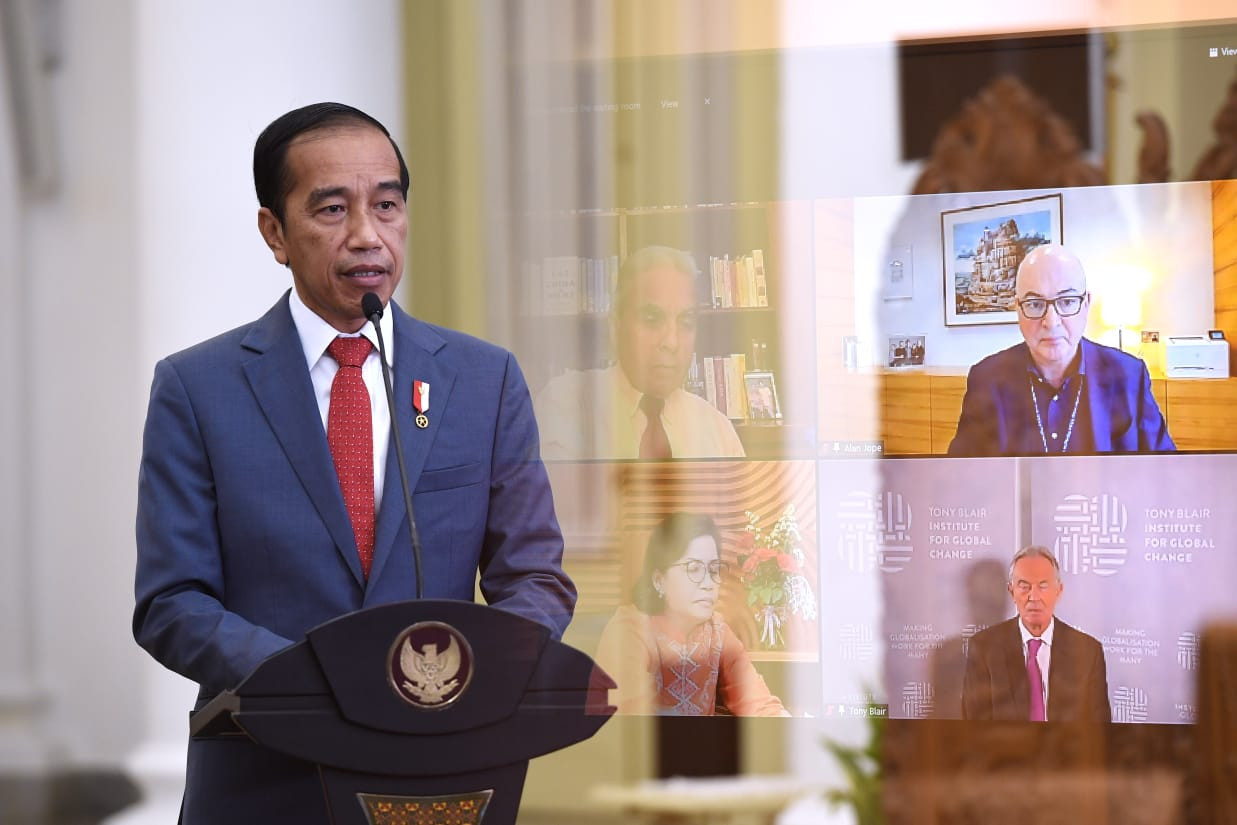Jokowi leads global push for green energy transition
A sustainable transition toward green energy is one of three key focuses for Indonesia’s G20 presidency
Change Size

A. Muh. Ibnu Aqil
The Jakarta Post/Jakarta
Group of 20 President Indonesia has called for a global solution to pave the way for the transition to green energy, with the private sector expected to play a key role in decarbonizing the economy, as more countries have pledged to reduce their carbon emissions.
Speaking during a Business 20 (B20) forum, President Joko “Jokowi” Widodo said a sustainable transition to a green economy was a “big responsibility” and presented a “significant opportunity” for businesses to take part in accelerating the transition.
“We hope for the B20’s contribution to accelerate a smooth energy transformation without having a negative impact on poor people. The global solution in terms of funding and partnership should be our main agenda, including technological transfer to boost green economy-based production,” Jokowi said during the B20 inception meeting last week.
The B20 is the official dialogue forum between global businesses and the G20 member countries. Established in 2010, it aims to deliver policy recommendations on selected priorities set by the rotating G20 president to spur economic growth and development.
Read also: Indonesia launches G20 forum on recovery, innovation
A sustainable transition toward green energy is one of three key focuses for Indonesia’s G20 presidency, along with inclusive healthcare and digital-based transformation.
Jokowi said Indonesia’s energy transition from fossil fuels to renewables was designed to safeguard “investment certainty”, adding that the government had pushed for early retirements of coal-fired power plants to be replaced with geothermal plants and solar panels.
“We would welcome the private sector's participation to invest in this energy transition,” said Jokowi.
United Nations special envoy on climate action and finance Mark Carney said Indonesia’s G20 presidency could be “decisive” in unlocking the power of the private sector to tackle the climate crisis, particularly as more countries and companies had announced their respective targets to reach net zero emissions.
However, he said countries should come up with “credible and predictable” policies, which is expected to attract more investors to help drive transition toward renewable energy.
“The more government climate policies are credible and predictable, the more investors will pour money in anticipation of changes, deriving large-scale investment, faster decarbonization, more jobs and greater growth,” said Carney.
The B20, he went on to add, could reinforce the calls for more ambitious policies such as the development of carbon markets and decarbonization policies in certain sectors such as transportation, among other initiatives.
The president of the United Nations Climate Conference (COP26) Alok Sharma said actions taken by the G20 member countries, which accounted for around 80 percent of global carbon emissions, would be decisive in the global transition toward green energy.
“We need countries to honor their commitment in the Glasgow Climate Pact, [namely] to improve their emission reduction target if necessary and turn all their targets and commitments into clear delivery plans,” said Sharma, referring to the agreement made at COP26, which was held in Glasgow, the United Kingdom, in November last year.
“We will work closely with friends and colleagues in the Indonesian G20 presidency this year to urge countries in that group to act.”
Read also: COP26 strikes hard fought deal but UN says 'not enough'
However, he said businesses could also play a significant role by coming up with initiatives to reduce their own carbon emissions, which would show the private sector’s willingness to throw its support behind the green economy.
“Doing so is not only good for the plant, it’s good for the bottom line as well,” said Sharma, adding that commitments made by countries and businesses at COP26 had sent a clear message that “the global economy is going green.” (mrc)









